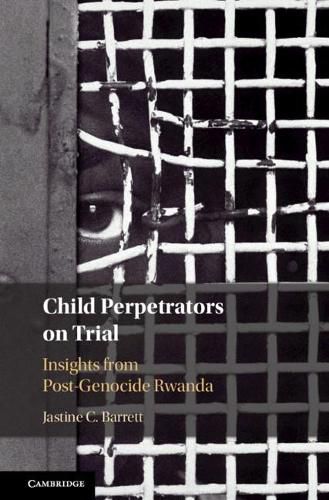Readings Newsletter
Become a Readings Member to make your shopping experience even easier.
Sign in or sign up for free!
You’re not far away from qualifying for FREE standard shipping within Australia
You’ve qualified for FREE standard shipping within Australia
The cart is loading…






Following a devastating genocide in 1994, the Rwandan government elected to hold all perpetrators accountable - including children. Thousands of children were held in prisons while awaiting charges; some were later convicted. This book is about these children. Drawing on interviews and extensive archival research in Rwanda, it documents their journey through prisons, formal courts, gacaca proceedings or re-education centres. Its insights extend beyond Rwanda, looking at how international law protects children accused of even the most serious atrocities. The book is about law in action, and how states, and international organisations, operationalise international standards on child perpetrators in challenging post-conflict conditions. Engaging with theories from international law, international relations and anthropology, it illuminates strategies utilised by UNICEF to promote the rights of alleged child genocidaires and traces UNICEF’s positive influence on their protection. It makes the case for principled pragmatism as an approach to human rights promotion in post-conflict societies.
$9.00 standard shipping within Australia
FREE standard shipping within Australia for orders over $100.00
Express & International shipping calculated at checkout
Following a devastating genocide in 1994, the Rwandan government elected to hold all perpetrators accountable - including children. Thousands of children were held in prisons while awaiting charges; some were later convicted. This book is about these children. Drawing on interviews and extensive archival research in Rwanda, it documents their journey through prisons, formal courts, gacaca proceedings or re-education centres. Its insights extend beyond Rwanda, looking at how international law protects children accused of even the most serious atrocities. The book is about law in action, and how states, and international organisations, operationalise international standards on child perpetrators in challenging post-conflict conditions. Engaging with theories from international law, international relations and anthropology, it illuminates strategies utilised by UNICEF to promote the rights of alleged child genocidaires and traces UNICEF’s positive influence on their protection. It makes the case for principled pragmatism as an approach to human rights promotion in post-conflict societies.